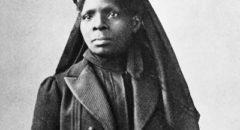
In a world that often seems filled with people who don’t quite look like us, it’s easy to question whether we have what it takes to succeed. Whether you’re pursuing a nursing career, a passion, or a dream, representation matters. Seeing someone who looks like you achieve their goals can be a powerful source of motivation and inspiration. But what happens when you don’t see anyone who looks like you in your chosen field? Does that mean you don’t have what it takes? Absolutely not!
Watch as Chizimuzo Okoli shares his compelling story here.
Breaking the Mold: Chizimuzo Okoli’s Inspiring Journey
In today’s world, where diverse voices and perspectives are increasingly valued, the story of Chizimuzo Okoli Ph.D., MPH, MSN, RN, serves as a testament to forging one’s own path. Okoli is a nurse and an established Associate Professor at the University of Kentucky and directs the Tobacco Treatment Services and Evidence-Based Practice at Eastern State Hospital, a state-psychiatric facility in Lexington, KY. He is also the Immediate Past President of the American Psychiatric Nurses Association. Despite all his accomplishments, his journey into nursing was not a sure one.
Okoli hails from a family where nursing was a familiar path as his mother and sister are nurses. But like many individuals contemplating their career choices, he had his own doubts and aspirations. At one point, he considered becoming a physician. However, it was his mother’s sage advice that led him to explore the world of nursing.
“I had thought about becoming a doctor, and when I told my mother of my considerations, she said I think you’d make a better nurse. At the time I was of the view that boys became doctors and women became nurses,” Okoli shares. “But when I looked into nursing, based on my mother’s advice, I found there was something appealing. The caring aspect of nursing was what really drew me in.”
Embracing this newfound passion, Okoli, then residing in Qatar, embarked on the journey to pursue nursing in the United States. His acceptance into the University of Kentucky College of Nursing marked the start of his remarkable nursing career.
Okoli now wants to encourage others to consider a career in nursing. According to him, “We need more people from diverse backgrounds to join nursing, especially the psychiatric-mental health nursing workforce, to provide care for the diverse and complex needs of our nation and help address our current mental health care crisis.” If one is not sure a career in nursing is for them, Okoli has a unique perspective on what makes a nurse successful.
RELATED: For Healthier Communities, We Need You in Nursing
What Makes a Nurse Successful?
Okoli notes that while many people associate nursing with caring and compassion, which are core to the role, they may not know there are a host of other skills needed to be an effective nurse.
Science/Math Skills: “You need a strong foundation in science, an ability to think critically, and an ability to find ways to improve the care that you give. That’s why I say that nursing is essentially part of STEM,” Okoli says.
Advocacy Skills: Nurses, through their education and professional development, gain a profound understanding of treatment modalities and the intricate needs of their patients. This knowledge empowers them to be strong advocates for their patients, advocating for personalized care plans and ensuring that patients’ voices are heard in their treatment decisions. “Nurses are incredible advocates for our patients because of our care. We know how to advocate for a patient’s community and different populations that have challenges with health. We think about the needs of the whole patient,” Okoli says.
Leadership Skills: Nurses are the largest healthcare workforce in the US, with unique insights due to the time they spend in direct patient care. As a result, they are uniquely positioned to understand the challenges and solve key issues within patient care and health systems. Leadership skills can turn good ideas into action and widespread change. To nurture those skills, nurses should actively participate in








